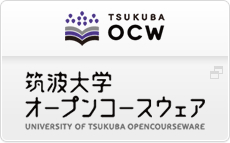about ENEP
Nine years have passed since the Great East Japan Earthquake and the Fukushima Daiichi Nuclear Power Plant accident. Our university established the Center for Research in Isotopes and Environmental Dynamics in 2012, and have promoted research in collaboration with Japan and Overseas institutions and universities through the Fukushima Radiation Monitoring of Water, Soil and Entrainment (FMWSE) and the Interdisciplinary Study on Environmental Transfer of Radionuclides from the Fukushima Daiichi NPP Accident (Iset-r: Grants-in-Aid for Scientific Research).
With maximized utilization of these research outcomes and research/education networks, we launched the new education program” Expert program of environmental management and prognosis of nuclear emergencies (ENEP)”, which are supported by the Ministry of Education, Culture, Sports, Science and Technology, since 2016. This is an education program for developing human resources who have certain knowledge and techniques to evaluate the dynamics of radionuclides in the environment (off-site).
In the four years from the start of the program, there were a total of more than 700 participants and 75 collaborators from the 28 organizations. We feel that we have achieved our goal which are development nuclear human resources in the field of the environmental science. On the other hand, there is a reality that the memories of the accident are fading year by year, and the related researches are also shrinking year by year. Nuclear emergency response is an issue that must always be prepared, even if there is little needs. Under such circumstances, maintaining and expanding the education and research network of this program is a major mission of our university.
Therefore, we launches a new development program “Expert Program for Environmental Management of Nuclear Emergency and Disposal Radioactive Waste”, which are supported by the Ministry of Education, Culture, Sports, Science and Technology, since 2020. This is to contribute to the treatment and disposal of radioactive waste, which is one of the most important issues in the nuclear field in the future, in addition to the theme of off-site environmental impact assessment in the event of a nuclear emergency.
Graduate School of Life and environmental Sciences offers Master’s Program in Environmental Sciences and Doctoral Program in Sustainable Environmental Studies.
We would like to express sincere respect and gratitude to all of the people concerned for their understandings, efforts and cooperation. We would also like to ask for continued support and encouragement for our program.
Prof. Yuichi Onda
Chief Administrator, Center for Research in Isotopes and Environmental Dynamics, University of Tsukuba
Head, Expert Program for Environmental Management of Nuclear Emergency and Disposal Radioactive Waste






